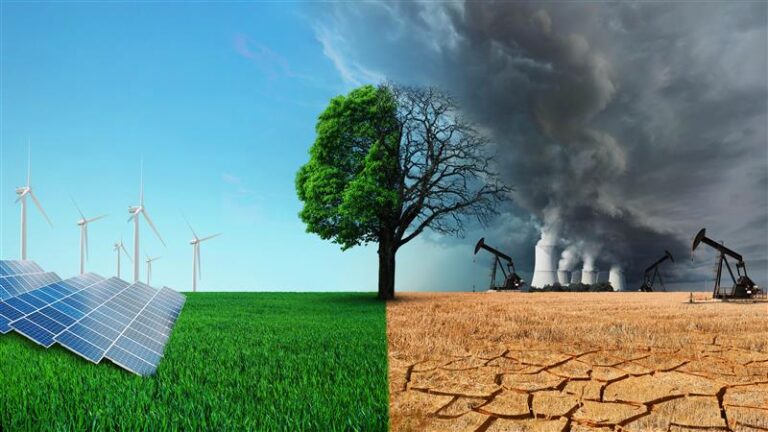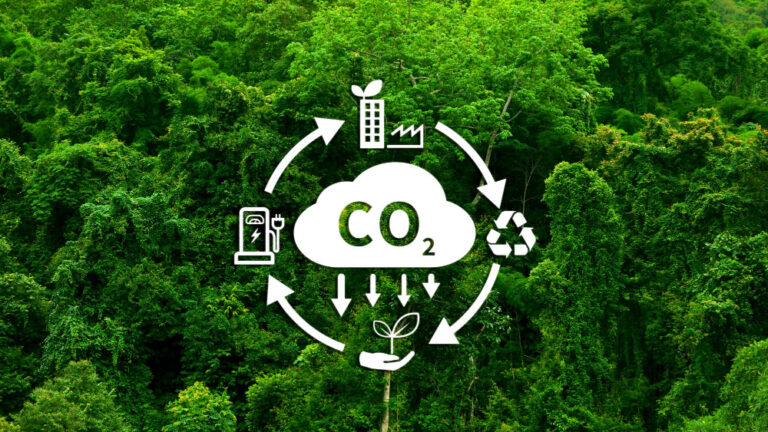Table of Contents
Climate change is among the most pressing issues on our planet. With increased extreme weather events and increasing global temperatures, individuals globally are wondering: Is going renewable enough to stop climate change? This article examines the science, facts, and more holistic solutions required, providing you with a clear, global perspective.
The Power of Renewable Energy
Wind, solar, hydropower, geothermal, and bioenergy emit little or no greenhouse gases when in use, making their carbon footprint negligible as compared to fossil fuels.
According to the Intergovernmental Panel on Climate Change (IPCC), wind and solar alone could deliver more than a third of the emissions reductions required to keep global warming within the 1.5°C pathway by 2030. In fact, if implemented at scale, renewable energy could decarbonise 90% of the power sector by 2050.- Source
Key Statistics – The Current State of Renewables

- In 2024, renewables made up almost 50% of electricity production in advanced economies, with wind and solar achieving a record 28% share, surpassing both coal and gas for the first time.
- Globally, renewable capacity grew by a record 585 GW in 2024, accounting for over 90% of all new power added.
- By 2025, renewables-based electricity generation is set to overtake coal—a milestone in energy history.
- In the last 6 years, five key clean technologies (including solar and wind) have collectively prevented around 2.6 gigatons of CO₂ emissions annually.
Can Renewables Do It Alone?
Although renewables are the foundation, experts and global organisations are in agreement that renewable energy cannot halt climate change completely. Here’s why:
- Global Energy Mix: Fossil fuels still generate more than half of the world’s electricity despite the increase in growth rates. The shift away from coal, oil, and gas must accelerate.
- Hard-to-Decarbonise Sectors: Heavy industry, aviation, and shipping are difficult to electrify directly. These sectors may also require hydrogen, biofuels, and carbon capture to reach net zero.
- Systemic Change Needed: Climate change is driven by emissions from agriculture, land use, and manufacturing—areas where renewables have a lesser direct impact.
- Energy Efficiency & Behaviour: Cutting emissions also requires major improvements in energy efficiency and changes in how we use and conserve energy globally.
“Solar, wind and other renewables are at the centre of the clean energy transition, but electricity is only a part of global energy use. Broader change is needed for meaningful climate impact.”
How Can We Stop Climate Change?
To effectively stop climate change, the world needs a multi-pronged approach:
- Electrify more sectors: Transport, heating, and industry need to switch from fossil fuels to clean electricity or green hydrogen.
- Scale up energy efficiency: Reducing demand with better technology and smarter consumption is crucial.
- Deploy complementary solutions: Technologies like nuclear energy, carbon capture, and nature-based solutions are needed alongside renewables.
- Accelerate global policy support: Ambitious policies are vital to close the gap between pledges and real progress
Ready to step up and lead the change?
If you’re passionate about shaping a sustainable future, advanced skills in both energy and sustainability are invaluable.
Discover how the MBA in Energy and Sustainability from UCAM, Spain, or the MBA in Sustainable Energy from ISTEC Business School, France, can set you apart, combining practical insight and strategic thinking for the modern green economy. Gain the expertise to drive real change in energy systems and sustainable business.
Final Thoughts
Renewable energy sources like solar, wind and hydro are important in fighting climate change. They help reduce harmful greenhouse gas emissions.
However, using renewables alone is not enough to stop global warming. We also need to improve energy efficiency, make transport and farming more eco-friendly, protect forests, and use carbon capture technologies.
In addition, strong government action, global teamwork, and changes in how we live and use energy are all needed. Renewable energy plays a big role—but it’s only one part of the bigger solution.
FAQs
1. Can renewable energy alone stop climate change?
No, renewables are vital but cannot single-handedly stop climate change without support from efficiency measures, storage, electrification of non-power sectors, and negative emissions technologies.
2. What other solutions are needed alongside renewable energy?
Energy efficiency improvements, sustainable transport, reforestation, and carbon capture technologies are essential to support the transition.
3. Is renewable energy good for economic growth?
Yes. Transitioning to renewables creates jobs, reduces energy insecurity, and supports innovation in sustainable industries.
4. What sectors are difficult to decarbonise with renewables?
Heavy industry, aviation, shipping, and some areas of agriculture still pose challenges due to technical and economic barriers to electrification.
5. Why is renewable energy important in fighting global warming?
It replaces fossil fuels, significantly reducing CO₂ emissions; a key contributor to global warming.







